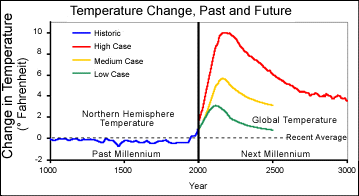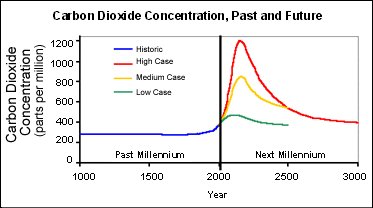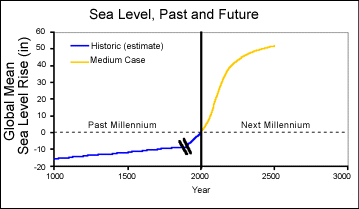Dec 15, 2025
Dec 15, 2025
Population Growth Year 1250 AD 400 million; The UN predicts that the world's population is most likely to grow from present 6 billion to 8.9 billion by the year 2050. Population growth is considered to be the root cause of the world's most environmental problems. Each human being needs food, water and shelter for his/her survival. One of the concerns has been that the expanding world population would inevitably outstrip Earth of its supply of natural resources, which sustain mankind. While a majority of the people in industrialized countries can procure an adequate supply of food and water, a significant proportion of humanity live in dire poverty in developing nations. They face starvation and experience acute shortage of clean drinking water. This unsustainable progression of extremes of wealth and poverty threatens the stability of society as a whole, and with it the global environment.
According to the United Nations (UN), world population exceeds 6 billion persons. Population in the year 1000 AD was 300 million. The approximate world population growth has been as follows :
Year 1500 AD ½ billion;
Year 1800 AD 1 billion;
Year 1927 AD 2 billion;
Year 1960 AD 3 billion;
Year 1974 AD 4 billion;
Year 1987 AD 5 billion;
Year 1999 AD 6 billion.
Population growth plays an important part in a wide variety of environmental problems including climate change, deforestation, and air and water pollution. The connection is logical, for all things being equal; a larger population will consume more resources and produce more wastes than a smaller one. The precise impact of population growth compared with other factors such as economic growth and technological change, however, has often been a matter of debate.
One of the side effects of population growth has been change in life style. More and more people, for economic and social benefits; prefer to live in cities and big towns rather than in rural areas. The migration to urban areas results in longer commutes, more frequent trips to visit relatives and friends left behind, living in small apartments, noise and air pollution etc. Some of these factors create stressful and unhygienic living conditions resulting in crimes, excessive consumption of alcohol and other drugs, divorces and other socio-economic problems. Urban areas also generate large volumes of wastes, particularly plastics, metal cans and toxic waste that are difficult to dispose off.
Effects of Development on the Environment
Nature has an efficient system to clean the elements and purge them of harmful substances. The Earth has sustained life for millions of years. Land, forests, oceans and atmosphere provide us with our food, shelter, medicines-they purify our air and water, stabilize the Earth's climate, and protect us from the sun's harmful rays. However, we human beings, in the pursuit of creature comforts have exploited natural resources in a thoughtless manner, resulting in harsh and often irreversible damage on the environment and on critical resources. Some areas of concern are as follows:
Water Resources
Exploitation of ground water supplies endangers food production and other human systems. Pollution of rivers, lakes, and ground water further limits the supply of drinking water.
Oceans
Destructive pressure on oceans is severe, particularly in the coastal regions which produce most of the world's fish. Rivers carrying eroded soil into the seas also carry industrial, municipal, agricultural, and livestock waste- some of it toxic. More than half the word's coral reefs are potentially threatened by human activities.
Soil
Loss of soil productivity, which is causing extensive land abandonment, is a widespread by-product of current practices in agriculture and animal husbandry. Some 20% of the world's susceptible dry lands are affected by human-induced soil degradation.
Forests
In a typical day, we lose a forest the size of New York City. In the past decade alone, 154 million hectares of tropical forest have been destroyed.
 Atmosphere
Atmosphere
The Northern Hemisphere has been warmer in the 20th century than at any time in the past millennium, and the 1990's has been the warmest decade of the period. The study, by Dr. Michael E. Mann and Dr. Raymond S. Bradley of the University of Massachusetts and Dr. Malcom K. Hughes of the University of Arizona, appeared in Geophysical Research Letters. Due to the buildup of greenhouse gases, the average temperature may increase into the next millennium.
 Carbon Dioxide Concentration
Carbon Dioxide Concentration
Due to industrialization - burning of coal, oil, wood and natural gas - concentration of carbon dioxide (CO2) in the atmosphere has been climbing. Nearly 1 billion people are inhaling polluted air which is causing them severe health problems.
 Sea Level Rise
Sea Level Rise
Warmer temperatures promote sea level rise through increased melting of land-based ice and by causing ocean water to expand. Over the last 1,000 years, sea level has risen at an average rate of about 1 inch per century. Over the last century or two, sea level has been rising at a faster rate, 4 to 10 inches per century, resulting in flooding and submersion of coastal plains and islands around the world.
We are attacking the environment with a multitude of high powered, lethal weapons: pollution, deforestation, global warming, unregulated development, over-consumption of resources, and destruction of habitat, to name a few. If future generations are to remember us more with gratitude than sorrow, we must achieve a balance between growth and technology. We must learn to respect God's gift of pure water, air, and earth and refrain from dumping toxic substances, which pollute the environment. Mankind has a very short span to take remedial actions to avert the threats that confront living beings.
A new ethic is required - a new attitude towards discharging our responsibility for caring for ourselves and for the earth. We must recognize the Earth’s limited capacity to provide for us. We must recognize its fragility. We must no longer allow it to be ravaged. This ethic must motivate a great movement, convincing reluctant leaders, reluctant governments and reluctant people themselves to effect the needed changes.
23-May-2000
More by : Mohan Dadlani